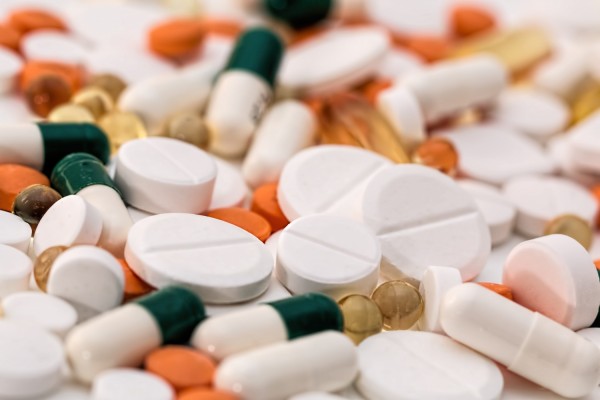Deficiencies in Vitamins D and E Could Contribute to Higher Risk of COVID-19, Study Suggests

A recent study suggests that vitamins D and E could possibly be great contributors to the prevention and treatment of COVID-19.
A new study recently suggested that vitamins D and E could be great contributors to the prevention and treatment of COVID-19.
The said research conducted by a team from the Medical University team, Lublin Poland, presented that COVID-19 attacks just a single intracellular genetic target, which is the AhRs or the aryl hydrocarbon receptors.
The theory of the study is that treatments aiming for the downregulation of ahRs, as well as the IDO1 genes, need to reduce the infection's severity.
Additionally, the research found that vitamin D's active form, as well as tocopherol, a type of Vitamin E, could play a vital role in assisting with the downregulation of such genes.
ALSO READ: Vitamin D as a COVID-19 Breakthrough and How It Can Alleviate the Impact on BAME People
Can Vitamin D Treat COVID-19?
Previous research suggested too that vitamin D may contribute to the prevention and treatment of the said virus. More so, the same study indicated that awareness and attention to the supplement definitely spiked in the past several months.
According to Brigham and Women's Hospital's chief of preventive medicine, Dr. JoAnn Manson, vitamin D is essential to building immunity, not to mention, a great contributor to the lessening of inflammation.
Dr. Manson, who is also a medicine professor at Harvard Medical School in Boston, also said, This is more of a concern of those who are experiencing vitamin D deficiency.
Manson said that she is calling for more attention to prevent the occurrence of vitamin D deficiency.
However, this does not mean that everyone should run for screening for deficiency of vitamin D, or rush to the drugstore to buy supplement tablets or capsules.
DON'T MISS THIS: Vitamin K May Help Improve Heart Health and Increase Longevity, New Research Suggests
Others in the Medical Field Remain Skeptical
Despite the claim of Manson and the team of researchers regarding the benefits of vitamins in terms of COVID-19 prevention and treatment, some doctors still remain doubtful of their impacts.
According to Dr. Pieter Cohen, an internal medicine physician practicing at the Cambridge Health Alliance in Cambridge, Massachusetts, he would discourage anyone from thinking that any pill can resolve this global health crisis.
More so, it will be the meticulous hand washing, wearing of face masks, and social distancing that will be the key.
Nevertheless, according to medical experts, deficiency in vitamin D is something preventable, Manson explained.
Dr. Manson emphasizes his stance on the intake of vitamins, specifically vitamin D intake. She said she is not making a recommendation in general, for supplements.
What she is saying is that people need to avoid vitamin deficiency, especially that it only takes typically being outdoors to get incidental sun exposure, on top of paying attention to meals that are rich in vitamin D.
This does not mean though, Manson emphasized, that one should go for hours of sunbathing minus protection from the sun. What she means is that one needs to go on more walks, not forgetting to put on some sunscreen and eat foods containing higher vitamin D levels.
Perfect examples of these vitamin D-rich foods include fortified cereals, sun-dried mushrooms, dairy products, and fatty fish, among others.
Lastly, the main point here, Dr. Manson explained, is that to avoid deficiency in vitamin D, one does not need to take high doses of supplements for that purpose alone.
IN CASE YOU MISSED IT: Chocolate Cake for Breakfast to Lose Weight? Here's What You Need to Know
Jul 06, 2020 10:10 AM EDT




